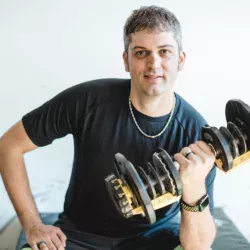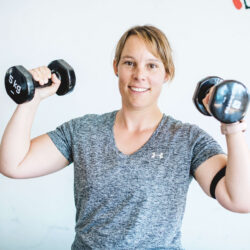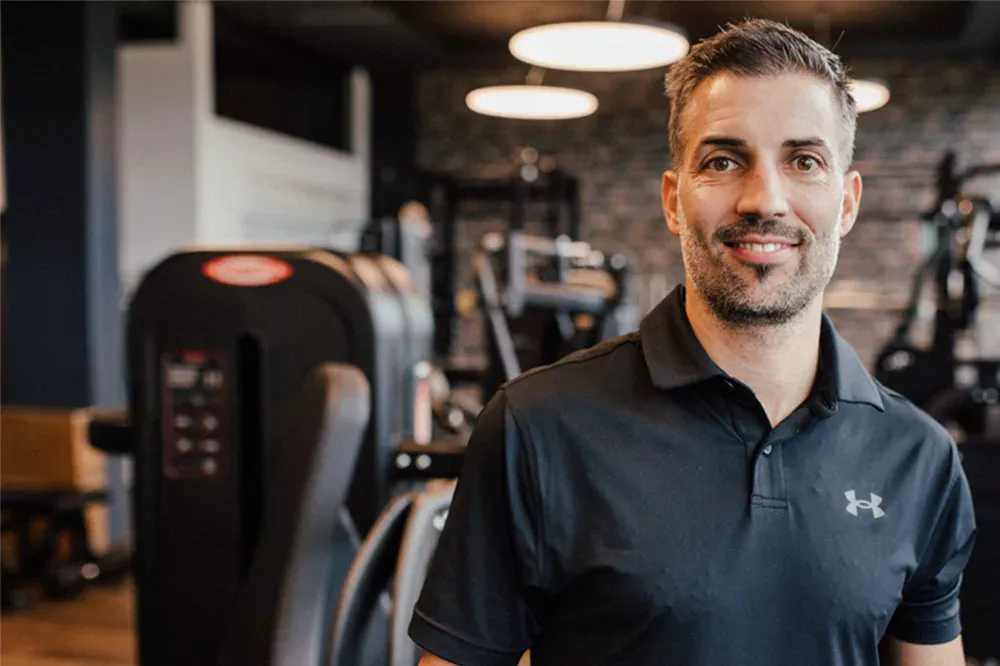Healthy Weight Loss – Without Crash Diets, Starving, or the Yo-Yo Effect
In this blog post, we will once again focus on the topic of nutrition. Questions about the movie “The Game Changers”, knowledge gained from further education, practical experience from working with clients and things “picked up” from conversations have given rise to this topic.
What is the best diet to lose weight?

As complex as humans are, in many ways they are very simple-minded or act on “brainless” primal instincts. When they don’t have to follow clear rules and instructions, they are often overwhelmed. No wonder diets that only allow certain products (juices, powders, foods) (preferably listed) or exclude a whole group of macronutrients such as carbohydrates (ketogenic) or fats do not help. Sometimes it is not even disclosed on which parameters it should be potatoes and not rice or pasta (I am not naming names here, there are many).
Other diets are more “open”, but still help you to find your way through the flood of offers. These include all types of intermittent fasting, be it 16:8 or 5:2. For more information, here is the link to the blog post on intermittent fasting.
Paleo, vegan, and carnivore diets also fall into this category. It is easy to remember what is allowed and what is not. This gives you structure and helps you say “no”.
If I allow everything, but give tips for moderate use of certain products such as sugar or processed foods, it is often more difficult for clients to follow through. In the following section, I explain why I still stick to it.
Why dieting is a short-sighted approach to weight loss
My first point is also the most obvious. What comes next?
A question I ask all my clients is: “On a scale of 0-10 (0=I only do it because I have to, 10=I love to eat), how much do you enjoy eating?
In 90% of cases, it is at least an 8. What are the chances that someone will go back to their old habits after a diet?It is more sustainable to moderately use products that are less helpful in reducing fat. So it’s not about being ascetic, it’s about learning about nutrition and understanding why foods with added sugars, artificial sweeteners, preservatives and food dyes are not healthy and watching what they do to you. You will very quickly notice that you have less craving for sweets, that your digestion improves, that you are less tired after eating, that you sleep better and maybe even more.
The bottom line: Only a change in diet will be successful in the long run. You will often find yourself enjoying foods that you used to avoid, and disliking things that are too sweet.
What factors affect calorie consumption and how should I eat to lose weight?
It has been scientifically proven and practically demonstrated that you can lose weight with many diets. The key is to eat fewer calories than you burn. This is called a calorie deficit.
Calorie consumption is influenced by many factors. From your genes, body constitution, metabolism (more on this in a blog post later this year), activity (conscious and unconscious (NEAT)) as well as food choices. The latter in particular is not well understood. It is also known as the ‘Thermic Effect of Food’ (TEF). Digestion of macronutrients requires varying amounts of energy. For example, 20-30% of total calories are lost during the digestion of protein. Fats lose only a few percent, and carbohydrates are also in the single digits (unless they are converted to fat for storage). Depending on my food choices, I don’t get the same amount of calories.
Why the desire to lose weight fast is wrong
1 kilogram of fat provides 9300 kcal. Since some energy is lost during the breakdown process, you need to save about 8000 kcal to lose 1 kilogram of pure fat.
To lose 1 kilogram of muscle, you only need to save about 1500-2000 kcal, because 1 kilogram of muscle mass is about 80% water. So when you use muscle protein for energy, you still lose a lot of water ‘for free’. This looks positive on the scale, but it is the worst case scenario that can happen. Fat will be rebuilt relatively quickly, muscle is much harder to build.
Let’s stay on this topic for a moment. The rapid weight loss that occurs with low-carb diets is by no means fat.
Do the math: If you have to cut 8000 kcal to lose 1 kilogram of fat, then that means that with a calorie deficit of 571 kcal per day, it takes 2 weeks to lose 1 kilogram of fat. And a calorie deficit of 571 kcal is a lot—too much for many people.
So what do you lose? Water! 1g of glycogen, the form in which carbohydrates are stored in the muscles and liver, binds about 3g of water. Even an adult who does not have much muscle mass or does not exercise much can store up to 500 grams of glycogen (can be over 1 kilogram for trained people). This means that you can easily lose 1.5 kg of water when you run out of glycogen.
This is not a big deal as long as you don’t overdo it or replenish your stores from time to time, but for the sake of transparency you need to tell your clients this.
How to lose weight healthily and keep it off
Let’s come to the end. Over the years I have tried many diets myself. Many of them work, and I explained why above. But many of them are also a rip-off or a ‘scam’ on the people who believe in them. Some diets are also downright unhealthy, leading to nutrient, mineral and vitamin deficiencies, or unnecessary stress on the adrenal cortex as cortisol is now required to regulate blood sugar (in the absence of carbohydrates and therefore insulin). Because our cells, like our organism, are highly complex and adaptable, we can survive many things for relatively long periods of time. However, you can really destroy your metabolism.
For healthy and sustainable fat loss, we at Personalworkout follow a balanced diet that is high in protein and fat, but also includes carbohydrates. All foods are allowed, but they should be as unprocessed and natural as possible.
A good guideline for a macro distribution in percentages would be 40-30-30 (fats, proteins, carbohydrates).However, depending on your activity level, the proportion of carbohydrates may be significantly higher.
Last but not least, it is important to approach your goal slowly, but in the long term. We never have a calorie deficit of more than 20%. I know that calorie deficits of 1000 kcal and more are sometimes prescribed. This is not our approach.
A slow change in diet with lots of tips and tools to help you lose weight in a healthy and sustainable way is included in our 90 day challenges.
Lose Weight Without Giving Up—Factors for Successful Dietary Change
I have already addressed the topic of the psyche in the blog post “Emotional Eating” (GERMAN). I won’t go into detail here. However, having the right mindset is incredibly important. Intrinsic motivation, seeing opportunities and not focusing on sacrifice. Announce your goal and ask your partners and friends to support you and not to discourage you with moralizing. It’s best to do it yourself. It’s easiest in pairs or even in a group! This would be a new WhatsApp group chat 🙂
I also discussed recovery in a blog post on sleep (GERMAN). It is so important in the context of this topic. If you want to learn more, Google “sleep & weight loss” or read about how sleep quality and duration affects hormones like ghrelin and leptin.
Below you can download the “Ultimate Guide to Eating for Results” for free. In addition to the tips above, you will also receive 10 other proven nutrition tips.
We specialize in successful weight loss. Check out our offer to lose body fat without losing muscle and without the yo-yo effect!
Get more valuable nutrition information for free here (GERMAN). In our Kitchen Workout cookbook (GERMAN) you will also find lots of tasty and healthy recipes that you can easily make at home.
Challenge of the Month
What Clients Say





















